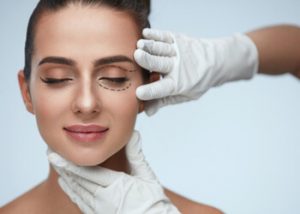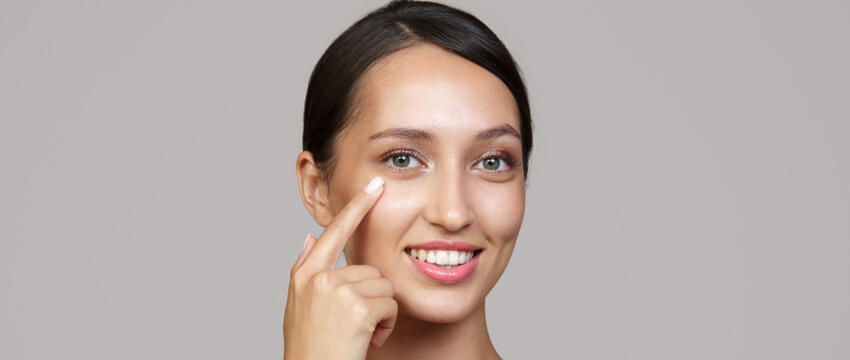Knowing what to do in the hours, days and weeks after eyelid surgery can help you to recover faster. It’s vital that you follow your surgeon’s post-operative care instructions so that you continue to heal quickly and you can get back to your life again. Let’s take a look at what you can expect during your eyelid surgery aftercare period.
Eyelid Surgery Aftercare: The Do’s And Don’ts
Make sure someone else is available to drive you home after the procedure. Ask your surgeon when you can expect to be able to drive again. It’s quite likely that you may need someone to help you at home for a day or two afterwards.
Make sure you follow a balanced diet. It’s easy to become constipated if you are sedentary or deviate from your usual routine. Make sure you drink lots of fluids, walk every day and think about including some additional fibre in your diet to avoid constipation.
Only take the pain medication that your surgeon gives to you, and take it as directed. Do not use paracetamol for pain relief, unless advised by your surgeon. Exercise the necessary precautions when taking medication: you should not drive or operate heavy machinery.
You should also prepare to eliminate alcohol for at least three weeks after your surgery, whether you are taking medication or not. Alcohol contributes to fluid retention and swelling so it is not recommended after eyelid surgery.
Avoid smoking and make sure you are not around other people who are smoking. Smoking presents a real risk to recovery, as it can slow it down, and also puts you at increased risk of infection after eyelid surgery.
Make sure you sleep with your head elevated for at least three days after your surgery. This can help to reduce the swelling.
Eyelid Surgery Aftercare: Caring For Your Wounds


Clean your incisions every day with soap and water. Inspect them for any signs of infection.
Cold saline compresses can help to reduce pain and swelling and are especially effective in the first 24 hours after your procedure.
You will need to wait for at least two weeks before you can resume wearing contact lenses so make sure you have backup glasses if this applies to you. You can wash your hair the day after eyelid surgery.
Eyelid Surgery Aftercare: What To Expect Afterwards
Sometimes it is necessary for the eyes to be covered by a bandage for the first night. You can expect to experience the maximum discomfort in the days following your eyelid surgery but this should improve as time passes.
You may experience temporary swelling, bruising, dryness, itchiness and burning of your eyes in the days following the procedure. Your surgeon may prescribe some artificial tears to bring relief to burning or itchy eyes.
It is also normal to experience some discharge from your eyes for up to a week after a blepharoplasty.
Once you have started healing you may still experience sensitivity to light, blurry vision or double vision.
Bruising and swelling may be present for up to two weeks post-surgery.
Healing may take place slowly and you may see a slight pinkness on your incisions for up to six months after your blepharoplasty. Sometimes little whiteheads may appear over the stitches, if this is the case, your surgeon will be able to remove them.
Once your stitches have been removed and most of the incisions have healed you can start thinking about wearing makeup again. Stitches are usually taken out after five to seven days.
Your eyes will feel more tired than usual after eyelid surgery. That means you’ll need to limit screen time and reading.
When can you go back to work? Everyone is different but most patients find that a ten to 14 day recovery period is sufficient for them to return to work. You may still have some bruising around your eyes after two weeks, but make-up can usually camouflage any residual bruising so it isn’t noticeable to other people.
When can you resume physical activity? It’s best to check your physical activity levels with your surgeon. Walking is fine to do but you will need to restrict anything strenuous like aerobics, jogging or cycling for two to three weeks.
Eyelid Surgery Aftercare: When To Get Help
If you notice a worsening of swelling or bruising or a new onset of symptoms that were not present previously you should contact your surgeon immediately.
If redness increases on the incision or you experience an increase in pain that doesn’t respond to pain medication, you should contact your surgeon.
Side effects from medication also need to be reported to your surgeon. You may notice a rash, headache or have nausea or vomiting.
Any discharge that is yellow or green or any bleeding from the incisions should also be reported. Discharge from the incisions could be a sign of an infection that requires treatment.
For more advice on eyelid surgery aftercare or how to heal and recover faster after eyelid surgery please contact us for a confidential appointment: (02) 8599 7161.




